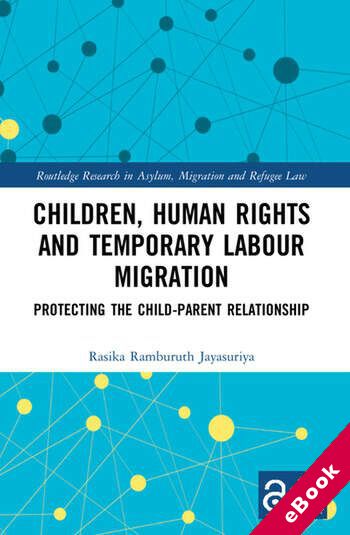We are now closed for the Christmas and New Year period, returning on Monday 5th January 2026. Orders placed during this time will be processed upon our return on 5th January.

The device(s) you use to access the eBook content must be authorized with an Adobe ID before you download the product otherwise it will fail to register correctly.
For further information see https://www.wildy.com/ebook-formats
Once the order is confirmed an automated e-mail will be sent to you to allow you to download the eBook.
All eBooks are supplied firm sale and cannot be returned. If you believe there is a fault with your eBook then contact us on ebooks@wildy.com and we will help in resolving the issue. This does not affect your statutory rights.
This book focuses on the neglected yet critical issue of how the global migration of millions of parents as low-waged migrant workers impacts the rights of their children under international human rights law.
The work provides a systematic analysis and critique of how the restrictive features of policies governing temporary labour migration interfere with provisions of the Convention on the Rights of the Child that protect the child-parent relationship and parental role in children’s lives. Combining social and legal research, it identifies both potential harms to children’s well-being caused by prolonged child-parent separation and State duties to protect this relationship, which is deliberately disrupted by temporary labour migration policies. The book boldly argues that States benefitting from the labour of migrant workers share responsibility under international human rights law to mitigate harms to the children of these workers, including by supporting effective measures to maintain transnational child-parent relationships. It identifies measures to incorporate children’s best interests into temporary labour migration policies, offering ways to reduce interferences with children’s family rights.
This book fills a gap that emerges at the intersection of child rights studies, migration research and existing literature on the purported nexus between labour migration and international development. It will be a valuable resource for academics, researchers and policymakers working in these areas.